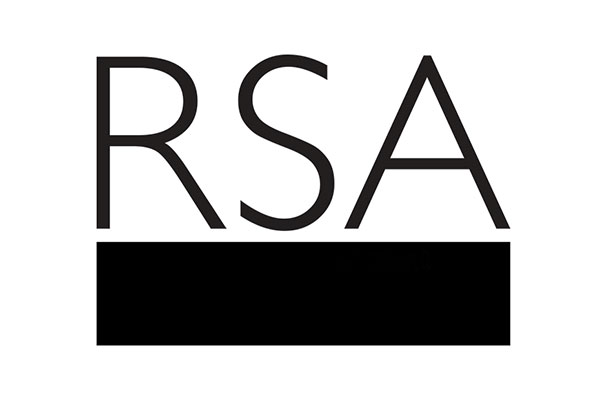Our most recent social enterprise breakfast was an illuminating affair for me. We have been holding these breakfasts for a couple for years now so it was high time that we focused on communications, and specifically how we approach communications in the social enterprise sector. We were joined by Peter Gilheany, PR Director for Forster Communications, a communications agency which was set up by Jilly Forster in 1996. Jilly's aim was to set up an agency with similar ethics to her previous workplace, The Body Shop.
Peter explained how Forster works with socially focused businesses; they don’t like to get involved in definitions of ‘social enterprise’, hence the emphasis towards working with those with a social purpose. He went through some of the considerations when communicating your social enterprise; the why, who (ie. audience), what and how.
Your messaging should be a conscious exchange with your audience, matching up their motivators and answering their perceived barriers.
He reminded us about the importance of identifying what motivates your audience and the barriers to them using your service or product. Your messaging should be a conscious exchange with your audience, matching up their motivators and answering their perceived barriers. This seems like common sense but I think many organisations get caught up in the running of a business and probably don’t stop to double-check they are still actively doing this. He also suggested that your internal audience can be maximised as advocates, and starting with a few key stakeholders, you can start to analyse what your barriers are; and to have a key stakeholder from your audience in your governance arrangement is good practice.
Peter gave us a lot of useful information but here are three key points which stuck for me:
 Point one: the best marketing tool is you/your impact/your opinions
Point one: the best marketing tool is you/your impact/your opinions
As a social enterprise without marketing budgets or a team to carry out the communications, the best tool you can use is ‘you’- ie as the founder/director/CEO of an organisation. Your ability to tell your story and that of your enterprise is one of your most powerful tools. It has the personal touch so try to scout out speaking engagements, blogs and editorial articles as much as possible. If time is an issue make sure you can still communicate your impact in a clear, dynamic and relevant way. Similarly if you are not someone who likes public speaking, try to identify someone in your team who can be the 'external face' for your organisation.
Point two: the difference between owned, shared and non-owned channels (and don’t spend so much time on your website)
When we spoke about the ‘how’, Peter highlighted the difference between owned channels (those you have control over, like website and newsletters), shared channels (mainly social media sites where you produce the initial content but it can be forwarded, interpreted and translated) and non-owned channels (essentially the media which gives you little control but high influence). Most people spend far too much time on their owned channels bearing in mind how much (or little) traffic and promotion they generate. Having said that, if your website has a high hit rate, having a slick, clear and well-structured website is worth it - so find a balance.
Point three: people don’t care whether you are a social enterprise
Now, this last point has got me thinking since Friday’s breakfast – when I asked what was the biggest mistake made by this sector with regards to communications, Peter said that telling people that you are a social enterprise is meaningless: it means nothing and “why should they care?” This jarred with me slightly, as surely by the fact you are helping people/the environment/society (as a social enterprise or social business) people should and will care? But then it hit me – the ‘social’ aspect of a business is secondary or even tertiary to demonstrating a quality product or service and being able to convince people why it will benefit their lives. You can then follow up with the fact their money is going towards a good cause but don’t lead with it. It comes down to cold, hard business sense that you have to be relevant and convenient for people to spend their money on you – even if you have the most amazing story.
The ‘social’ aspect of a business is secondary to demonstrating a quality product or service and being able to convince people why it will benefit their lives.
So that was our journey on Friday morning. Thanks to everyone who came along and in particular to Peter for giving us much to think about. It was a reminder for me that the Social Entrepreneurs Network is a great resource to have your thinking challenged. I remember a Fellow once saying about the network, “no-one I know thinks how you all think” which can only be a positive thing. You can get involved in the network by visiting the online group. The next breakfast will be on Friday 29th November at 9am so I hope to see you then.
Sarah Tucker
Fellowship Communications Manager
Follow her @SarahTucker10
Related articles
-
Empowering Women farmers in Vietnam
Alison Kwan
How Alison Kwan FRSA, winner of RSA Catalyst Seed Grant, is using the Grant to create an innovative, sustainable way to empower Women in Central Vietnam to be independent farmers.
-
Think Smart Careers
Gurjinder Dhaliwal
How a Fellow is using employers' insights to improve social mobility
-
Accelerating the Accelerators
Dirk Bischof FRSA
With the UK’s biggest event for growing mission driven business (Beyond Good Business 2017) just around the corner, Dirk Bischof, founder of Hatch Enterprise explores the wider impacts of business incubators.


Be the first to write a comment
Comments
Please login to post a comment or reply
Don't have an account? Click here to register.